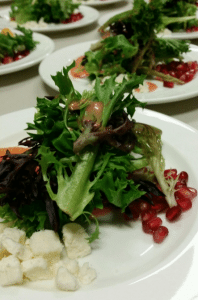As an older adult, when you focus on your health, it’s often to ensure you’ve got a good plan in place to stay physically healthy. Everyone knows that eating healthy foods, exercising, and seeing the doctor regularly can reduce our risk of serious health issues like heart disease, diabetes, and cancer. But what’s less known is that the health of our brain is also important. Like your heart, liver, or lungs, your brain is an integral part of your body, and it’s important to take steps to keep it healthy.As you age, your brain’s volume gradually decreases causing nerve cells to weaken. In addition, blood flow to the brain slows as we get older. These changes can cause lapses in memory and the loss of cognitive abilities. Acute memory loss, difficulty with language and speaking, and trouble reasoning may be a sign of age-related dementia.
To keep the brain working its best, and to help protect against dementia, considering follow the tips below.
- Learn a New Skill. Have you always wanted to speak Italian or paint a portrait? As an older adult, the time is right to learn a new language or immerse yourself in a new, mentally challenging hobby. Reading, working on jigsaw puzzles with more than 500 pieces, Sudoku or crossword puzzles, and playing intellectually challenging board games like chess are easy ways to keep your mind sharp. Experts recommend doing something that exercises your brain on a daily basis.
- Get Your Heart Rate Up. Recent studies performed at the University of Illinois at Urbana-Champaign found that people who exercise on a regular basis have fitter brains, and that out-of-shape people who begin a workout regimen greatly improve their overall brain health. As we age, our brain cells, or neurons, lose their ability to connect, and these connections are integral for cognitive health. When we exercise, we increase blood supply to the brain and strengthen the development of neurons.
- Stay Social. It’s proven: The more you interact with friends and family, the more you help keep your brain healthy. A recent study in the journal Experimental Gerontology showed that strong relationships with loved ones helped keep aging brains young. Don’t wait for invitations from others to be social; reach out to friends and family on a daily basis, schedule weekly lunches with loved ones, or volunteer at a local charity.
- Maintain a Great Diet. When it comes to your brain’s health, what you eat matters. Diets high in fats and cholesterol have been linked to Alzheimer’s, and today doctors recommend seniors steer clear of fried foods and chose lean meats, dark leafy vegetables, and nuts instead. Consider adding omega-3 fatty acids, vitamins E, D and B12 and folate to your diet as well, either through a supplement or by eating foods rich in these nutrients. Note: Talk to your doctor before taking a supplement. Your doctor may perform tests for certain vitamin and mineral deficiencies and advise you on the recommended dosage.
- Eliminate Stress. According to researchers at Harvard, disciplines including meditation, Tai Chi, and gentle yoga can improve brain health in older adults. In fact, even taking a vacation is great for the brain.
With just a few changes to your daily routine and diet, you can keep your brain strong and protect yourself against age-related dementia.


